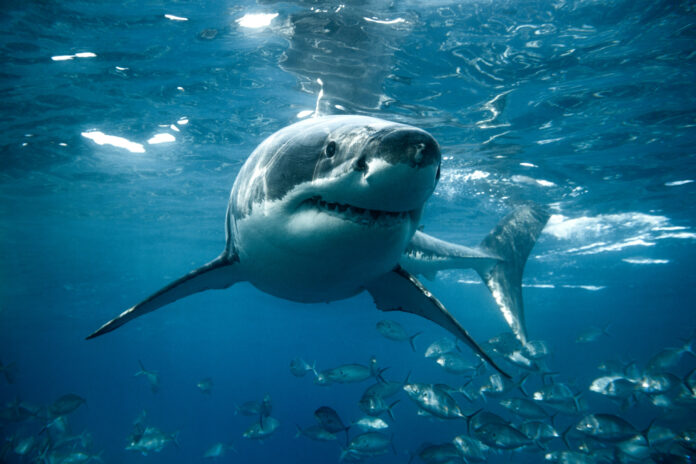A surfer has been seriously injured by a shark in Australia 12 days after a teenager was killed in another attack.
The 65-year-old surfer was airlifted to the hospital after the shark mauled him on the leg on Tuesday, near Elliston on the Eyre Peninsula in South Australia, according to a SA Ambulance statement, said a report by The Guardian.
When he arrived at the hospital, the surfer was in stable condition and was sent to the Royal Adelaide hospital for further treatment.
He had been around 650 feet from shore when the shark attacked, according to surf website Swellnet. The exact species of shark has not been confirmed by authorities, but some news reports have stated it was a great white.
Newsweek has contacted SA Ambulance Service.
Nautilus Creative/Getty
This attack comes just a dozen days after a teenage boy was killed in a fatal shark attack in the same region.
The 15-year-old Khai Cowley had been surfing off Ethel beach to the west of Adelaide when the shark attacked. This was the third fatal attack in South Australia since May last year.
Although not confirmed, it is suspected that a great white was responsible for the attack.
Summer is currently in full swing in Australia, meaning locals and tourists are more likely to be in the water. Attacks are more likely when sharks are actively hunting in the area.
There have been 42 unprovoked shark attacks in South Australia since records began in 1700, according to the International Shark Attack File.
Most shark attacks in Australia occur in New South Wales, which has recorded around 271 unprovoked attacks. Sharks do not hunt humans, meaning that attacks are often a result of mistaken identity. And despite these recent incidents, in general they remain extremely rare.
Experts have previously theorized that the shape of a surfing board on the water can sometimes resemble the look of a seal to a shark.
For this reason, a shark may bite the surfer but will more often than not let go once it realizes it is not the usual prey.
Sharks however, especially great whites, have an incredibly long and sharp set of teeth that are designed to rip through prey easily. Shark attack victims have lost limbs due to the sheer force of the predator’s bite.
Do you have a tip on a science story that Newsweek should be covering? Do you have a question about sharks? Let us know via [email protected].
Uncommon Knowledge
Newsweek is committed to challenging conventional wisdom and finding connections in the search for common ground.
Newsweek is committed to challenging conventional wisdom and finding connections in the search for common ground.


